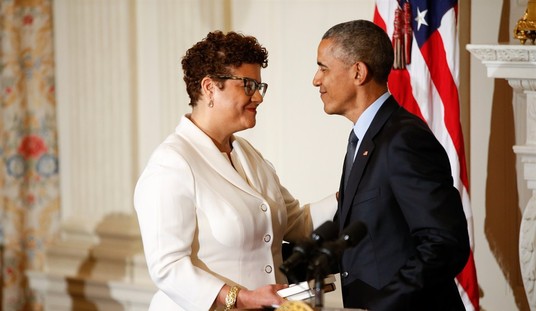After the Wall Street Journal ran an opinion piece on the subject earlier this week, increasing attention is being focused on Richard Cordray who, for some reason, is still in charge at the Consumer Financial Protection Bureau (CFPB). There are a couple of different issues with this Obama holdover, and one of them is the newly arisen question of whether or not he violated the Hatch act. Word on the street is that Cordray is preparing to run for Governor in Ohio and has been engaging in some political maneuvering along those lines. Since he’s still an agency official in the Executive branch, that might turn out to have run afoul of the law. (Cleveland.com)
A Texas congressman has requested a federal investigation into whether Consumer Financial Protection Bureau Director Richard Cordray is illegally working to run for Ohio governor.
House Financial Services Committee Chair Jeb Hensarling, a longtime GOP critic of Cordray, asked U.S. Acting Special Counsel Adam Miles on Friday to review whether Cordray violated the Hatch Act, which prohibits executive-branch employees from engaging in political activity.
In a letter to Miles, Hensarling pointed to media reports that Ohio Supreme Court Justice Bill O’Neill was contacted by an unnamed mutual friend of Cordray’s earlier this month stating that Cordray is planning to run for governor and asking whether O’Neill would remain out of the Democratic gubernatorial primary.
I’ll confess that my experience with Hatch Act cases frequently leaves me in the dark as to when or how someone might have violated it. There are provisions about “using your office for political activity” and such which seem to be almost intentionally vague at times. But if Hensarling sees enough smoke there to chase after it, the question probably deserves a fair hearing.
Completely separate from the Hatch Act questions, there’s the matter of policies supported by Cordray and if they are in keeping with the direction being charted by the new administration. Specifically, the small dollar loan rules as they’ve come to be known are under a of scrutiny. The Hill wrote about this question back in June with some particularly scathing commentary.
In particular, the CFPB has set its sights on the small dollar lending industry, which services more than 15 million American households each year with accessible, short-term loans, by proposing regulations aimed at curtailing this critical form of credit. All indications suggest that a rule proposed last year to address payday, vehicle title and certain high-cost installment loans is forthcoming — despite its near-certain devastating impact on small businesses and consumers.
After the 2008 financial meltdown, there was certainly room for additional scrutiny of our financial institutions; but the small dollar lending industry was in no way related to or responsible for the financial crisis.
I personally find that analysis to be completely overheated and one-sided in its praise for that particular industry. These so-called payday lenders and title loan outfits charge outrageous interest for small loans which can wind up draining people’s paychecks for years. But at the same time, what they’re doing isn’t illegal. As much as the practice seems to be predatory in nature, true fiscal conservatism would dictate that the responsibility for avoiding those types of loan traps falls on the consumer who retains the right to choose for themselves. (Even if they choose unwisely.) Rather than having the government essentially ban the practice under the unchecked auspices of the CFPB, public education about various lending options would be a better route.
We can have a debate about whether the CFPB needs to remain in existence another day. (It probably doesn’t, by the way.) For the moment, we’re stuck with it. But if we have to have it in place, Richard Cordray seems a dubious choice at best to keep at the helm. And this is a problem which could be solved pretty quickly by the White House if they’re moved to act on it.








Join the conversation as a VIP Member